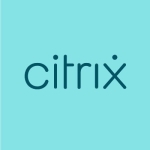We are a computer service company with several partnership. We are partners with HPE, Cisco, IBM, VMware, Red Hat, just to mention. We provide data centers solutions, with Hardware, Networking, Security, and Software. Also, we have our data center and we are offering cloud solutions for others.
We are deploying Red Hat products for our cloud solutions. And our cloud is Red Hat Virtualization based, and soon we will have another cloud Red Hat OpenStack based.
For the cloud solutions, we're in the marketing and sales stage. We are planning to build software solutions for clients in addition to what we will be offered publicly. We have a lot of clients in petroleum and banking sectors. For our clients, we are planning to offer them the best solutions for their activities on the cloud.
We have two branches, our headquarter is in Tripoli and we have a branch in Benghazi. Between the two offices, there are around 28 engineers acting in providing solutions.
Because of my background is in Open Source, the number one feature is it is open source. This means all Open Source features are included. So, I can control and manage everything. This is the best part for me.
Also, Red Hat products are easy to use.
The documentation is not as good as it should be. There is a need for making it descriptive and in sequence. There are a lot of links in the docs and some parts are repeated.
Technically, Red Hat products are robust and durable with an excellent support.
I have been using this solution for a few months.
It's very scalable. We haven't experienced any issues.
Whenever there's an issue or problem, I contact customer support and they take it seriously. They're very cooperative. They are always quick in response. They are very, very supportive.
We are using VMware and for a time, just for virtualization. Now we are going to work on clouds. Therefore, we want to move ahead with Red Hat to use either private, hybrid, or public cloud. We want our data center to offer cloud solutions for our clients.
Because of the miss-organized documents, it was a bit difficult in the beginning. Once it went on, it became very easy. Overall, it's a very smooth and straightforward process.
Deployment took a couple of weeks. I did it in-house because we are a Red Hat partner, and there's no subscription and support for partners.
I am not fully sure, but I believe we pay on a yearly basis.
I would definitely recommend this solution. Everywhere the cloud is the choice and by offering this solution locally this give it a plus.
Overall, on a scale from one to ten, I would give this solution a rating of nine.










